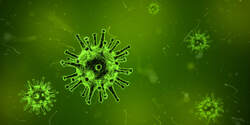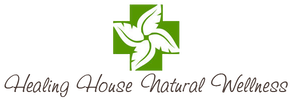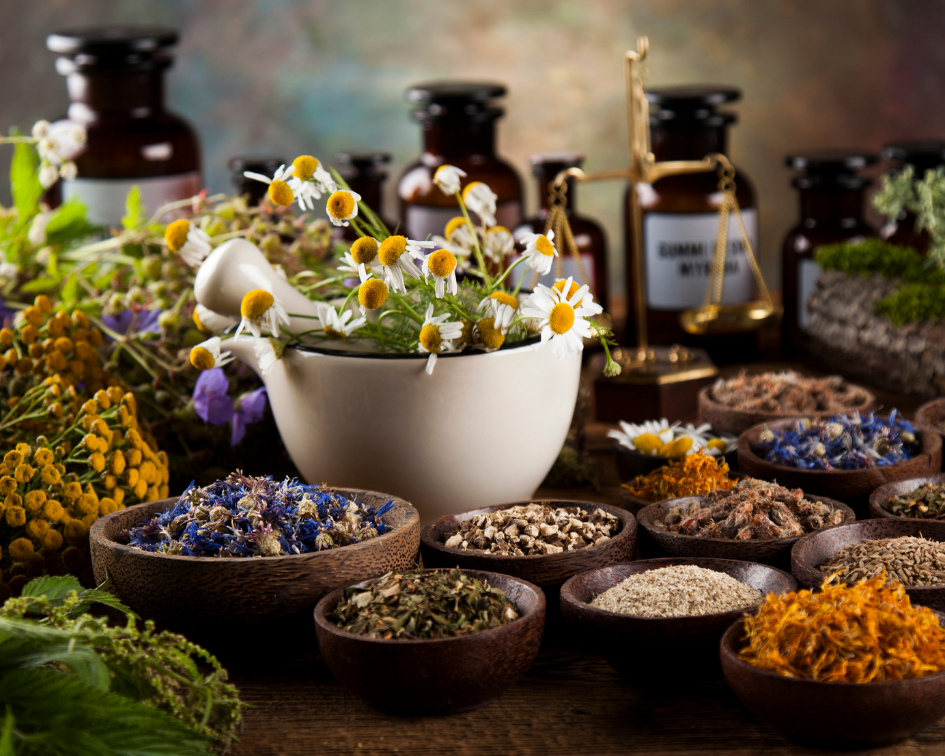 We've all seen the hype! Frantic families darting for the last case of water, civilized people fighting over the last flat of toilet paper, or disinfectant wipes, or face masks. We shake our heads when we see it on the news, but even if we are not actively participating in the pandemic of fear, we are all concerned about the possibility of uncertainty. As part of our mission statement at Healing House Natural Wellness, we state that as professionals it is of great importance for us to supply information based on facts, science, and tradition. The following information is to assist in disarming fear, and to empower each individual to make informed decisions based off of information offered by the CDC, The Public Health Agency of Canada (PHAC), and The World Health Organization (WHO). Additionally, you will find information on herbs traditionally used for acute viral and upper respiratory infections, and also those used in traditionally building the immune system along with supplements and dietary recommendations for boosting your state of general wellness. The Facts: What We KnowThe following statistical information is up to date as of March 24th, and has been taken directly from the Public Health Agency of Canada (PHAC) Website, and the World Health Organization (WHO). The Current Situation in BC: There are currently 472 confirmed cases of COVID-19 in British Columbia, and there has been 13 deaths associated with these infections. Risks to Canadians: COVID-19 is a serious health threat, and the situation is evolving daily. The risk will vary between and within communities, but given the increasing number of cases in Canada, the risk to Canadians is now considered high. This does not mean that all Canadians will get the disease. It means that there is already a significant impact on our health care system. If we do not flatten the epidemic curve now, the increase of COVID-19 cases could impact health care resources available to Canadians. There is an increased risk of more severe outcomes for Canadians:
It is important for all travellers to:
Do you think you might have COVID-19? Use the self-assessment tool to find out what to do. How Canada is Monitoring COVID-19 The Public Health Agency of Canada is working with provinces, territories and international partners, including the World Health Organization, to actively monitor the situation. Global efforts are focused on containment of the outbreak and the prevention of further spread. Canada's Chief Public Health Officer of Canada is in close contact with provincial and territorial Chief Medical Officers of Health to ensure that any cases of COVID-19 occurring in Canada continue to be rapidly identified and managed in order to protect the health of Canadians. Canada's National Microbiology Laboratory is performing diagnostic testing for the virus that causes COVID-19. The laboratory is working in close collaboration with provincial and territorial public health laboratories, which are now able to test for COVID-19. A summary of people tested in Canada is available and updated each week day. How COVID-19 Spreads:The Viral Source: Coronaviruses are a large family of viruses. Some cause illness in people, and others, such as canine and feline coronaviruses, only infect animals. Rarely, animal coronaviruses that infect animals have emerged to infect people and can spread between people. This is suspected to have occurred for the virus that causes COVID-19. Middle East Respiratory Syndrome (MERS) and Severe Acute Respiratory Syndrome (SARS) are two other examples of coronaviruses that originated from animals and then spread to people. How Does the Virus Spread? This virus was first detected in Wuhan City, Hubei Province, China. The first infections were linked to a live animal market, but the virus is now spreading from person-to-person. It’s important to note that person-to-person spread can happen on a continuum. Some viruses are highly contagious (like measles), while other viruses are less so. The virus that causes COVID-19 seems to be spreading easily and sustainably in the community (“community spread”) in some affected geographic areas. Community spread means people have been infected with the virus in an area, including some who are not sure how or where they became infected. The virus is thought to spread mainly from person-to-person.
Currently there is no evidence to support transmission of COVID-19 associated with food. Before preparing or eating food it is important to always wash your hands with soap and water for 20 seconds for general food safety. Throughout the day wash your hands after blowing your nose, coughing or sneezing, or going to the bathroom. In general, because of poor survivability of these coronaviruses on surfaces, there is likely very low risk of spread from food products or packaging that are shipped over a period of days or weeks at ambient, refrigerated, or frozen temperatures. References: The Centers for Disease Control and Prevention Government of Canada/PHAC World Health Organization Herbs for Immunity, Acute Viral Infection, and Upper Respiratory Infection:As each individual is different, please do not consider this article as commentary for self dosing. Some herbs are inappropriate with certain medications and should not be taken. If you have questions about herbs, please contact us at the office directly, or contact your Medical Doctor or Pharmacist to discuss potential contraindications. If you feel you may have Covid-19 or are experiencing symptoms associated with the disease, please contact your local health department for proper diagnosis. As a clinical herbalist, I am grateful for the knowledge I have in times such as these. That is not to say that I claim to have the answers to Covid-19, however, there are a large number of herbs that are traditionally used to help ease the length of viral infections, to assist in bolstering immunity and lessen severity, and to help the upper respiratory tract during times of acute infection. Below I have mentioned some of the more specific ones that in my opinion may be useful in acute infection. Traditional Herbs for Immunity, Acute Viral and Upper Respiratory InfectionBaptisia tinctoria (Wild Indigo Root):
Wild indigo has a long standing tradition as quite a powerful anti-microbial herb. Although it is not specifically considered to be anti-viral, it is excellent for secondary infections associated with viral infections. It is considered to be an immune stimulant, meaning it stimulates the immune system to work at its best capacity. It is antiseptic, anti-microbial, and an active anti-catarrhal which means it helps to dissolve and eliminate the formation of mucous and inflammation in the mucous membrane. It is specific in infections with fever, and specific as an herb that is excellent for issues with pneumonia. Echinacea angustifolia or purpurea (Echinacea Root): We have often heard of Echinacea being used as an immune booster. However, it does not boost the immune system in the manner we think it does. Unlike other herbs which physically act upon the immune system by helping it function more properly, it is said that Echinacea instead alters the environment in which a microbial infection may thrive. In saying this, it is considered to be an immuno-modulator, it helps to move lymph which is exceedingly important in ensuring that all channels of elimination are open. It is considered to be antiseptic, anti-microbial, anti-bacterial, and anti-viral, this is excellent because it can help with both primary viral infection, and secondary bacterial infection which can often occur. Like Wild Indigo it is also an anti-catarrhal, but to further the combination it is anti-inflammatory, and a detoxifying agent. It is traditionally used to help build resistance within the immune system and is specific for infections with cough. Uncaria tomentosa (Cat's Claw Vine): This herb is native to the Amazon rain forest. The part that is used is the interior bark of the plant. It is a potent full body tonic, but most importantly it is traditionally used as a restorative, anti-viral, anti-bacterial, and anti-inflammatory. It helps to bolster a weak immune system in individuals who have a tendency to infections. Often used for its anti-tumor qualities (traditionally it is used to cut off the blood supply to tumours), this herb is also excellent in viral infections associated with the lungs, or swellings/fluids in the lungs. Bupleurum falcatum (Chinese Thorowax): There has been research done in China in regard to this herb and Covid-19. Though there have been no solid clinical trials, there have now been a few case studies done from Traditional Chinese Medical Doctors who have used this herb in formulation with others. Thorowax is used both in Traditional Chinese Medicine (TCM), and also Western Clinical Herbalism. It is traditionally used as a general tonic and immune enhancer, and for its anti-viral, and anti-inflammatory properties. It is also considered to be specific in colds and flus and has a tonic effect on the heart and lungs. Most importantly it is used traditionally to improve respiration (breathing). Lomatium dissectum (Desert Parsley): Desert parsley is considered to be a full systemic tonic and an immune stimulant. It is also used traditionally for its anti-microbial, anti-viral, and expectorant capabilities. As Covid often has a dry cough, having herbs that help move mucus and decrease inflammation in the mucosal membrane is key. This herb is a powerful ally and is traditionally used for congestion in the lungs, including asthma and specifically pneumonia. The above are just a sample of the many herbs that can be helpful in situations with acute upper respiratory viral infections. If you have questions or would like to discuss herbal options for your specific needs, please feel free to call the office at 778-866-3320. The best course of action is prevention. Please continue social isolation in your respective communities, stay home, and stay healthy! - Petra Sovcov, Clinical Herbal Practitioner
1 Comment
|
Petra Sovcov is not a Medical Doctor (MD) nor a Naturopath (ND), she is a Clinical Herbal Therapist (CHT) and holds a Doctorate in Natural Medicine (DNM). The suggestions or recommendations made on this site are not meant to be a substitute for advice from your MD, or as a substitute for any prescriptions you may be taking. Suggestions followed will be the responsibility of the reader, and are stated with the intention of interest and education only. If you have a health issue, please see your primary care physician (MD) first and foremost. Categories
All
Archives
July 2024
|


 RSS Feed
RSS Feed